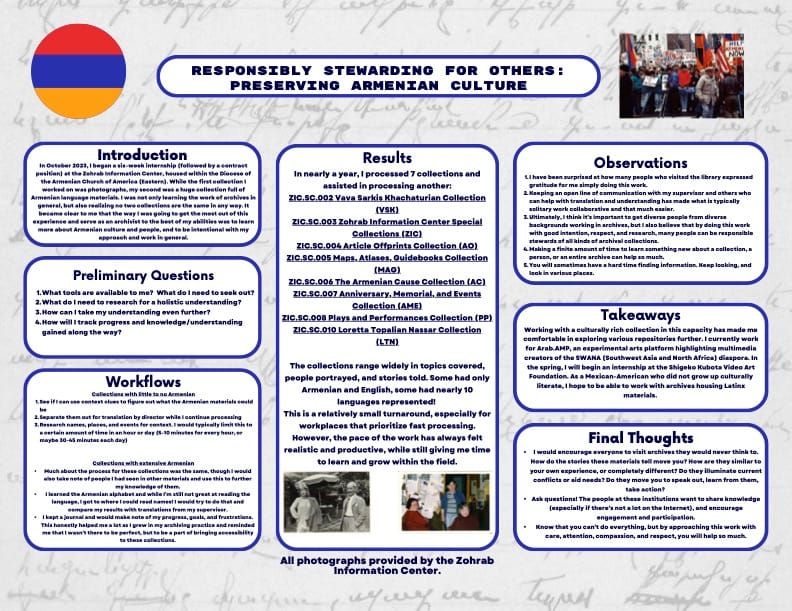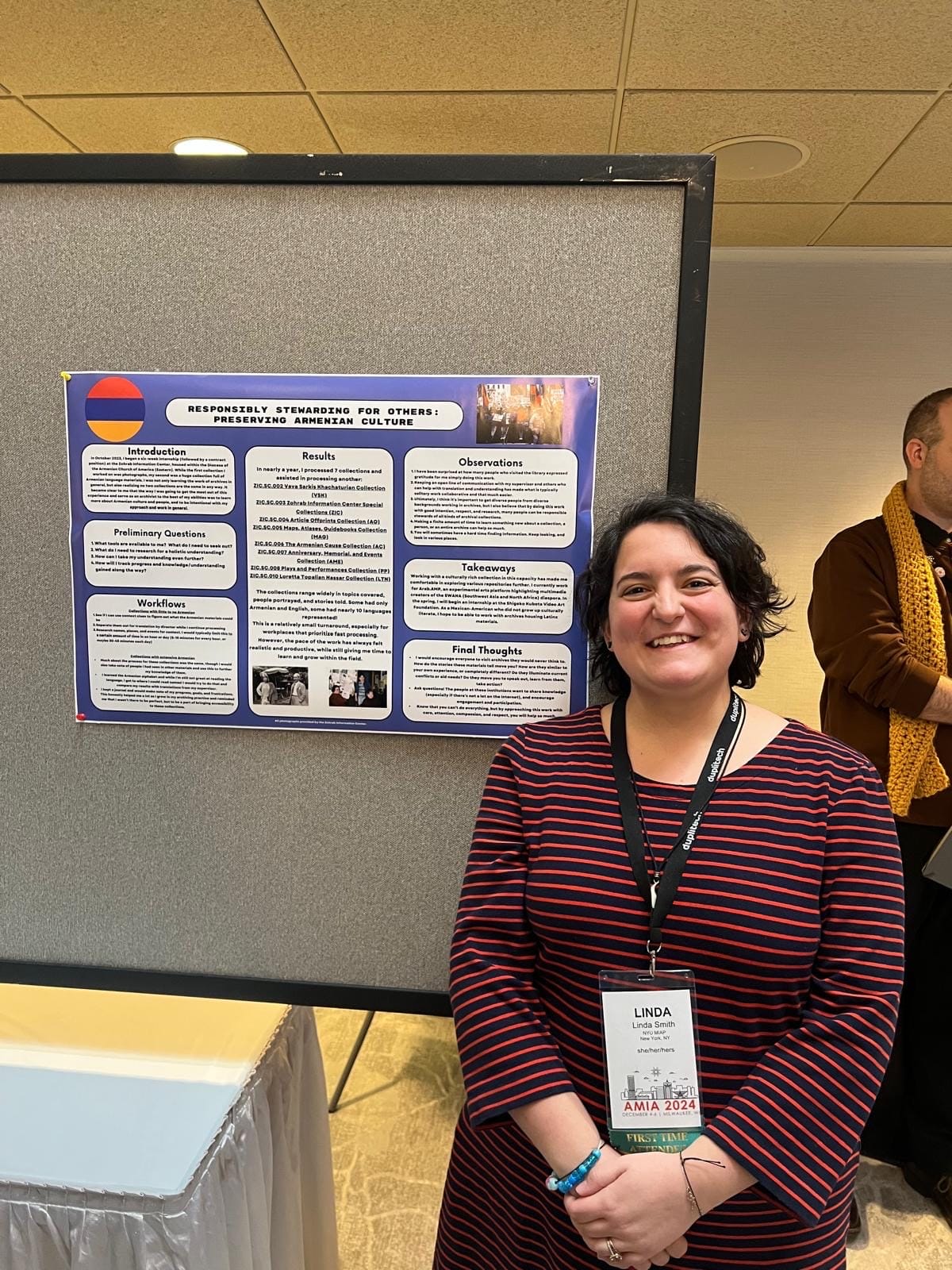Im-Poster Syndrome, or How I Learned to Stop Worrying and Love the Process

I'm currently at a conference. While it's not my first conference, it is the first one where I'm a part of the programming. I had a poster session today, in which I talked about my work at the Zohrab Information Center, housed within the Diocese of the Armenian Church of America (Eastern).
I wondered if my proposal was strong enough, but went ahead and submitted it anyway. Having this type of initial thought is representative of a lot of my internal grappling with doing this work at all, ever since I began working there as an intern. One of the first things I pondered was if I was the "right" person to work as an archivist in this particular place. Isn't the ideal candidate someone who is culturally Armenian, who knows how to read and speak Armenian? Yes, and I do think that getting more people of diverse cultures, ethnicities, and backgrounds is critical to onward and upward trajectory in this field.
Be that as it may, I know that feeling sorry for being in the position I'm in at any time isn't going to make any of these systemic and institutional problems go away. If anything, it nags at oneself and all those who put trust in you and your ability in a neverending way.
Even coming to terms with that, I wondered how I would be the best, most responsible steward of this information. I had to do the work at 110% or else it wasn't helping anyone, I thought. I had to be not only well-versed as early as possible, but a model employee. And I want to reiterate that no one else put these expectations upon my shoulders; this is all a case of Good Girl Syndrome, summed up pretty well here in a video by Erin McGoff:

I unlearned a lot of those limiting thoughts throughout the course of a year, but I learned a lot about continuing in the work from both the first and the latest collections I've processed.
The first is the Vava Sarkis Khatchaturian collection. She and her husband Sarkis were both internationally renowned painters who traveled the globe exhibiting their works. While her husband's fame eclipsed her own, he died in 1947 from complications following an appendectomy. Vava not only continued painting and exhibiting her own works for another 30+ years, but she also continued to serve as a representative, spokesperson, and advocate for Sarkis's work as it exhibited around the world, too. Her story inspired in me the need to continue, not only for yourself but your loved ones.
The latest collection I completed is the Loretta Topalian Nassar collection. Loretta is a researcher whose interest primarily lay in Joseph Emin, who fought to free Armenia from Persian and Ottoman rule by visiting various world leaders, to no avail at the time. Emin was also the first Armenian to write his autobiography in English. Loretta began (but did not finish) a dissertation on Emin and language, though it is clear from her collection that this was not from a lack of passion. Those materials are a great reminder that we don't need the best reason or circumstances to do something and that it's okay if the end result doesn't materialize in exactly the way we envisioned.
While I worried about how my poster would be received, I got thoughtful questions, suggestions, and moments of connection with friends, staff, faculty, and new peers and colleagues. It allowed me to talk about other work I'm doing with diverse cultural organizations currently and in the near future. While I feel that a lot of work still needs to be done to get archivists into institutions where they can safeguard their cultures, I know that if I put work, care, and attention into my work and research and collaborate openly with my supervisor and other stakeholders, I can be a part of increasing access to these unique materials. I look forward to years of continuing to learn as I share other's stories and actively engaging with colleagues to figure out what's next.


